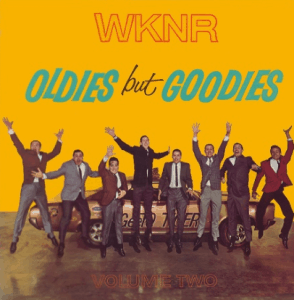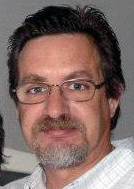By Fred Jacobs
So it turns out I’ve known Scott Westerman about as long as I’ve known anyone in radio. We met at Michigan State back in the ‘70s, but Scott was already a radio veteran having started out at WPAG/Ann Arbor at the ripe old age of 14. By the time he earned a Telecom degree at MSU, Scott was doing mornings at WVIC/Lansing. While radio was in his blood, Scott ended up becoming a cable television magnate, founded the World Beacon shortwave radio network, started up a record label, and created the popular keener13.com tribute site modeled after his beloved WKNR/Detroit.
Today, Scott is head of the MSU Alumni Association, and lives to put together smart Spartans of yesterday and today for the betterment of all. I have seldom come across media professionals as passionate as Scott.
Last week, I posted a blog – “How Can I Matter More?” – and it resonated with Scott. His blog comment was too good to become a post of its own. It covers a lot of ground, but harkens back to the days when jocks simply mattered more. Is that about the nature of those times or where those personalities more tapped into their listener communities than many of the jocks of today?
Scott Westerman and Steve Schram founded Keener13.com in 2004.
Please enjoy some great storytelling, schooling, and food for thought from one of the best, Scott Westerman.
 Last week I had the rare opportunity to dine with Bob Green, the legendary WKNR air personality and program director. We found a quiet corner in a Houston restaurant and caught up on each other’s families and adventures during the last year.
Last week I had the rare opportunity to dine with Bob Green, the legendary WKNR air personality and program director. We found a quiet corner in a Houston restaurant and caught up on each other’s families and adventures during the last year.
Then the conversation turned to radio. Every minute I spend with Bob is a lesson from the master. As I read your post this morning, it occurred to me that “Everything Old is New Again.” All of the ideas you discussed in this post, at one time or another, were part of the WKNR playbook.
 What Bob calls, “intelligent flexibility” (Air Check) rewarded creativity. Gary Stevens’ WollyBurger, J. Michael Wilson’s Rodney the Rodent. Scott Regen’s Melissa Mulch and the parade of characters that Tom Ryan created for Dick Purtan. All of these ideas were the creations of these artists. Scott Regen got “The Burger Club” and “The Groove Yard” ideas directly from listeners and implemented them almost immediately. When the Beatles and the Monkees came to town, Keener was the brand most associated with their appearances. And Scott Regen’s connections with Motown are legendary. That’s him saying, “This is the police…” on R. Dean Taylor’s “Indiana Wants Me”.
What Bob calls, “intelligent flexibility” (Air Check) rewarded creativity. Gary Stevens’ WollyBurger, J. Michael Wilson’s Rodney the Rodent. Scott Regen’s Melissa Mulch and the parade of characters that Tom Ryan created for Dick Purtan. All of these ideas were the creations of these artists. Scott Regen got “The Burger Club” and “The Groove Yard” ideas directly from listeners and implemented them almost immediately. When the Beatles and the Monkees came to town, Keener was the brand most associated with their appearances. And Scott Regen’s connections with Motown are legendary. That’s him saying, “This is the police…” on R. Dean Taylor’s “Indiana Wants Me”.
There is a famous Bob Green aircheck where he stopped the show to talk a kid into staying in school (on the air) when the listener called to make a request. Bob ran into that person at a recent radio reunion. He’s now a CEO.
Some things didn’t work. Keener’s “Vote For Your Favorite School Principal” backfired big time. But the man behind the curtain, Frank Maruca, was a buffer between the artists and station manager, Walter Paterson, an old school guy who didn’t get the vibe that was going on. And the team was allowed to innovate.
The result was a listener perception of a close, personal relationship with people who informed, entertained and cared about us. People who knew their subject cold. People who were in a constant state of experimentation. People who adjusted the format, sometimes on the fly, to attend to what the listener needed right now.
That does not exist today. With a few notable exceptions, my kids see broadcasting as nothing more than an iPod rotation with 18 minutes of commercials an hour. There is now a generation who doesn’t have the tradition of listening to terrestrial radio and as it becomes easier to connect smart devices to the dashboard, Pandora, Spotify and iTunes will have the wide side of the field. Despite the industry hype, most broadcasters won’t. You’ve done a great job of articulating the path to redemption, Fred. It’s about the people. Radio needs to engage where they are – read: mobile, blogs, Facebook, apps, and most importantly, in person. Radio needs to listen to what its customers want and provide it in a hyper-local, interactive, personal way. There is no incentive to do this when there are virtual market monopolies/duopolies that prioritize shareholder return over entrepreneurial risk. When you have a personnel
blood bath every Christmas, it’s a sign that you have lost your mojo.
Jobs understood this. So do Zuckerberg and Westergren. Our guys are riding the dinosaur into the tar pits.
There are some smart people who head these broadcasting companies. They craft cogent arguments for the decisions they make. They believe they have the formula for survival figured out. An unsinkable medium that will continue to deliver customers to the bank.
The guy who designed the Titanic thought he had the formula, too.
I changed barbers recently. These guys have been cutting hair for 30 years and grew up here. About 5 minutes into my first clipping, one of them made the connection that I “used to be on WVIC.”
 “We came to see you at Roller World,” owner Kevin Willett said. “You spoke at our school. I still have an album you signed. My daughter is on the radio at Olivet College and uses the same sign-off you used to use. I taught it to her.”
“We came to see you at Roller World,” owner Kevin Willett said. “You spoke at our school. I still have an album you signed. My daughter is on the radio at Olivet College and uses the same sign-off you used to use. I taught it to her.”
I haven’t been on the air regularly in over 20 years.
“Touching someone, making a difference, giving someone a story to tell,” this is what friends do. Radio still has the ability to be that friend, to inspire, even mentor listeners, developing lifelong connections along the way… if it can figure out how to matter more.

